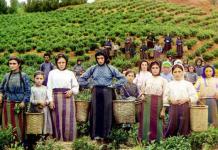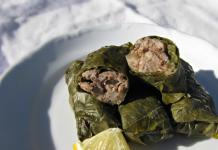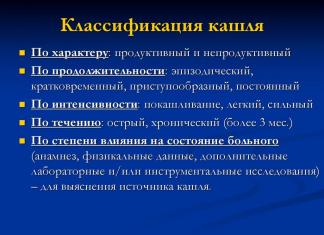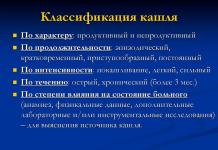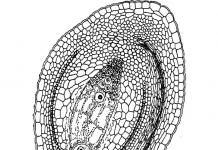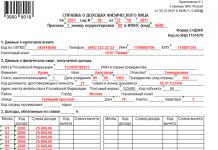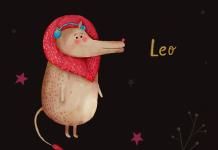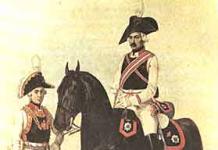Russia has been taking part in the international Eurovision Song Contest since 1994. In 1996, 1998, 1999 and 2017, Russian singers did not participate in the finals of the competition.
In 1996, due to the excess number of countries, the organizers had to conduct an additional selection, and Russian Andrei Kosinsky did not pass it. Two years later, Russia was not included in the competition according to the ranking determined by the results of previous years. In 1999, Russia found itself outside of Eurovision, as a year earlier it had decided not to broadcast the competition in live due to the absence of a Russian representative, and according to the Eurovision rules, such a broadcast is mandatory.
In 2017, at Eurovision in Kyiv (Ukraine), Russia was to be represented by Yulia Samoilova with the song Flame Is Burning. However, the Security Service of Ukraine banned her from entering the country for three years because of her performance in Crimea.
The European Broadcasting Union (EBU) suggested that Russia either broadcast the competition via satellite or change the contestant. The Russian Channel One stated that they consider these options unacceptable and in the current situation the channel does not consider it possible to broadcast the competition. EBU stated that Russia refused the proposed alternatives.
The first Russian participant in the international Eurovision television competition, which took place in Dublin (Ireland), was Maria Katz under the pseudonym “Judith” in 1994. With the song "Eternal Wanderer" she took ninth place out of 25.
Maria Katz was born on January 23, 1973 in Moscow. Russian singer, sang in musical groups"Kvartal", "League of Blues", "Maryland", was a backing vocalist for many famous Russian performers. Laureate of the title "Voice of Russia". Lead singer of the band Balls of fire. Founder of the Hit Start recording company. Characters of Russian versions of Hollywood films (the musical "Chicago") and cartoons ("Anastasia", "Rapunzel") sing in Maria's voice, and she voices commercials.
Philip Kirkorov was born on April 30, 1967 in Varna. Multiple winner of the Ovation, Golden Gramophone, MUZ-TV, Stopudovy Hit awards, World Music Awards, as the most popular performer in Russia, laureate of the annual Song of the Year festival. Awarded the Kinotavr Film Festival award in the Best Actor category.
Currently, Philip Kirkorov produces artists and groups and performs his own concert programs.
In 2009, Philip Kirkorov was the host of the Eurovision Song Contest, which took place in Moscow.
In 1997, Alla Pugacheva took part in the Eurovision Song Contest, which took place on May 3 in Dublin (Ireland). She finished 15th out of 25.
Alla Pugacheva was born on April 15, 1949 in Moscow. Soviet and Russian pop singer, People's Artist of the USSR (1991), laureate of the State Prize of the Russian Federation (1995). Over the years creative activity Alla Pugacheva has created many concert programs. Along with active concert activities, she took part in dozens of prestigious festivals and song competitions, both as a participant and as a jury member. Pugacheva is the owner of a unique collection of titles, prizes, and awards. The Cambridge International Biographical Center awarded her the personalized medal "2000 Outstanding Musicians of the 20th Century".
In 2000, Alsou represented Russia at the Eurovision Song Contest. The competition took place in Stockholm (Sweden). Alsou performed a song on English Solo and became the first Russian singer to take second place at the competition.
Alsou (Alsu Abramova, maiden name - Safina) was born on June 27, 1983. Alsou's musical career began in 1998, when the singer was 15 years old. The song “Winter Dream” brought her great popularity. The singer's discography includes several albums, including "Alsu" (1999), Alsou (in English, 2001), "I Dreamed of Autumn" (2002), "19" (2003), "The Most Important Thing" (2008), "Native Speech" (), "Letters from the war" (), etc.
In 2001, the group Mumiy Troll performed from Russia at the Eurovision Song Contest. The competition took place on May 12, 2001 in Copenhagen (Denmark). The group took 12th place with the song Lady alpine blue. "Mumiy Troll" is a Russian rock band from Vladivostok. Formed in 1983. Songwriter, vocalist and band leader is Ilya Lagutenko. Stylistics of the Lagutenko group. The group is the winner of the Ovation, Golden Gramophone, FUZZ, MTV Russia Music Awards, MUZ-TV awards, etc. Its discography includes more than 10 studio albums, including Polar Bear (2010), Rare Earths ( 2010), Vladivostok (2012), Hey Tovarish! (2012), "Moomikam from Trolliks. Sleep, rock and roll" (2012), Malibu Alibi (2016), "EAST X NORTHWEST" (), etc.
In 2002, Russia was represented at the Eurovision Song Contest by the Prime Minister quartet. The competition took place on May 25, 2002 in Tallinn (Estonia). The group sang the English version of Kim Breitburg's song based on the verses of Karen Kavaleryan Northern Girl ("Girl from the North") and took 10th place among 24 participants in the competition.
The group "Prime Minister" was formed in early 1998 by producer Evgeny Fridland and sound producer Kim Breitburg. Since 2005, the team has been called "PM Group". The group consists of Zhan Milimerov, Marat Chanyshev and Pete Samuel Jason.
In 2003, the Russian group t.A.T.u. came third at the Eurovision Song Contest with the song “Don’t Believe, Don’t Be Afraid, Don’t Ask.” The competition took place on May 24, 2003 in Riga (Latvia).
The Tatu project was created in 1999 by screenwriter and director Ivan Shapovalov, two 15-year-old schoolgirls Lena Katina and Yulia Volkova were selected as participants. The song "I'm Crazy" debuted on the radio in 2000 and spent several months at number one on the radio charts. On May 15, 2002, the Russian pop duo "Tatu" received the IFPI Platinum Europe Award for one million copies of the album "200 in the opposite direction" sold in Europe.
In November 2002, the group, which from now on became known as t.A.T.u., took part in the European Music Awards, presenting the Best Dance Video category and performed the hit All the Things She Said live. After this event, the group received worldwide recognition. In 2003, after participating in the Eurovision Song Contest, Volkova and Katina broke their contract with Ivan Shapovalov and began producing themselves, releasing two albums - “Disabled People” (2005) and “Management of Waste” (2007). In 2009, the girls announced that they were planning to start solo careers. In April 2013, the group's first concert took place after the breakup. In February 2014, girls at the pre-party of the opening ceremony of the 2014 Winter Olympics in Sochi.
In 2004, Yulia Savicheva took 11th place at the Eurovision Song Contest with the song Believe Me. The competition took place on May 15, 2004 in Istanbul (Türkiye).
Yulia Savicheva was born on February 14, 1987. In 2003, she took part in the Star Factory-2 project. Her songs regularly became hits: “Ships”, “Vysoko”, “Sorry for Love”. The year 2004 was marked by Yulia’s participation in several international competitions, where she represented Russia. In addition to Eurovision, in 2004 she performed at the World Best competition and took 8th place. The singer's discography includes the albums Believe Me (2004), "Vysoko" (2005), "If Love Lives in the Heart" (2005), "Magnit" (2006), "Origami" (), etc.
In 2005, Russia was represented at Eurovision by Natalya Podolskaya with the song Nobody hurt no one by Viktor Drobysh. The final of the competition took place on May 21, 2005 in Kyiv (Ukraine). At the competition, Natalya took 15th place.
Natalya Podolskaya was born on May 20, 1982. In 2004, she became one of the brightest participants in the Star Factory-5 project, the music producer of which was Alla Pugacheva. At the end of the project, Natalya became one of the winners of “Star Factory-5” and the only singer who released her solo album “Late” (2004) as part of the project.
In 2006, Russia was represented at the competition by Dima Bilan, who took second place with the song Never Let You Go. The final of the competition took place on May 20, 2006 in Athens (Greece).
The Serebro group, formed in 2006, is a project of Channel One producer Maxim Fadeev. In 2009, the group's debut album "Opium Roz" was released. Currently, the members of the group are Olga Seryabkina, Ekaterina Kishchuk and Tatyana Morgunova. Among the group's awards are the Golden Gramophone and Breakthrough of the Year awards.
In 2008, Dima Bilan took part in the Eurovision Song Contest for the second time. The competition took place on May 24, 2008 in Belgrade (Serbia). With the song Believe, with which Bilan and the Hungarian violinist Edwin Marton, he took first place.
In 2009, Russia was represented at the Eurovision Song Contest by Anastasia Prikhodko with the song “Mamo”, she took 11th place. The final of the competition was held on May 16, 2009 at the Olimpiysky Sports Complex in Moscow.
Anastasia Prikhodko is a Ukrainian and Russian pop folk singer. Born on April 21, 1987 in Kyiv. She gained fame after winning the Channel One show “Star Factory-7”.
In 2010, Russia was represented at Eurovision by the Musical Band of Peter Nalich with the song Lost and Forgotten. The final of the Eurovision Song Contest took place on the night of May 30 in Oslo (Norway). Petr Nalich and his group with 90 points based on the results of the audience vote and the decision of the professional jury. The "Peter Nalich Musical Band", made famous in 2007 by the Guitar video on YouTube, consists of Petr Nalich himself, who is a songwriter, vocalist, pianist, accordionist and guitarist; Sergei Sokolov, playing acoustic guitar and domra; Konstantin Shvetsov, playing the electric guitar, as well as saxophonist, flutist and vocalist Yuri Kostenko; keyboardist Oscar Chuntonov; bass guitarist Dmitry Simonov and drummer Igor Javad-Zade. The group has several albums to its credit - “The Joy of Simple Melodies”, “Merry Baburi”, “ Goldfish", "Songs about love and homeland", etc.
In 2011, Russia was represented at the Eurovision 2011 Song Contest by Alexey Vorobyov with the song Get You. The final of the competition took place on May 14 in Dusseldorf (Germany).
Alexey Vorobyov was born in 1988 in Tula. In 2005 he. In 2007, he received the “Discovery of MTV-2007” award at the MTV Russia Music Awards. The song for the Russian Eurovision participant was written by RedOne, the author of Lady Gaga's hits and the official melody of the 2006 FIFA World Cup, who collaborates with Shakira, Enrique Iglesias, Jennifer Lopez and other world stars. IN recent years As an actor, Vorobyov starred in the films and TV series “Treasures of O.K.” (2013), “The Three Musketeers” (2013), Ekaterina (2014), “Guest Players” (2015), “Get Up and Fight” (), etc.
In 2012, Russia was represented at the Eurovision Song Contest by the group "Buranovskie Babushki" with the song Party for Everybody, which took second place. The final of the competition took place on May 26 in Baku (Azerbaijan). The ensemble "Buranovskie Babushki" was created in the village of the same name in Buranovo, Udmurtia, more than 40 years ago. The average age of the group members is 70 years, the repertoire is based on. The ensemble also became famous for performing modern hits in Udmurt, Russian and English. Since the end of 2014, "Buranovskie Babushki" have been performing under the name "Brangurt Pesyanayos", which translated from Udmurt means "Grandmothers from the village of Buranovo".
In 2013, at the Eurovision Song Contest, the final of which took place on May 18 in the Swedish city of Malmo, Russia was represented by singer Dina Garipova. The lyrical composition What if, performed by Garipova, took fifth place.
Dina Garipova was born on March 25, 1991 in Zelenodolsk (Tatarstan). From the age of six she studied vocals at the Zelenodolsk Song Theater "Golden Microphone". Graduated from Kazan Federal University in the field of journalism. In December 2012, she won the Channel One television project “The Voice”. After this, she was awarded the title of Honored Artist of the Republic of Tatarstan. In February 2013, Garipova with the Russian branch of the record company Universal Music Group.
Last updated: 05/11/2016
The debut year for Russia at Eurovision was 1994. The singer received the honor of becoming the first participant in the competition representing our country Masha Katz, also known by the pseudonym Judith. In Irish Dublin, she performed the song “Eternal Wanderer” and took 9th place.
Masha Katz was a member of such groups as "Quarter" And "Blues League", as well as a backing vocalist for many famous Russian performers. She performs in concerts, teaches vocals, and takes part in scoring films and cartoons. Has the title “Voice of Russia”.
In the next one, 1995, at Eurovision, which was again held in Dublin, Russia was represented by a popular pop singer Philip Kirkorov. With the song “Lullaby for a Volcano” he took 17th place.
Philip Kirkorov is one of the most famous Russian performers, People's Artist of Russia, winner of many prestigious awards, ex-husband famous singer Alla Pugacheva. Today, Kirkorov produces and performs concert programs.
IN 1996 a singer and composer was supposed to attend the competition Andrey Kosinsky, however, his song “I am I” did not pass the additional qualifying round.
Andrey Kosinsky is a composer from St. Petersburg who has written songs for many famous pop performers, such as Valery Leontyev, group "A" Studio, Alena Apina, Laima Vaikule, Mikhail Boyarsky.
IN 1997 represented the country Alla Pugacheva. Having performed the song “Primadonna”, she took 15th place. Initially it was supposed to be performed Valery Meladze, however, he fell ill.
Alla Pugacheva began her singing career back in the 1960s, and subsequently became famous throughout the country. Her repertoire includes more than 500 songs. She is a People's Artist of the USSR, has many awards, in particular, she was awarded the State Prize of the Russian Federation.
The next time Russia participated in the competition only in 2000. A young singer from Tatarstan participated from our country in Eurovision Alsou, who at that time was not yet 17 years old. Alsou was waiting for triumph - her song “Solo” took 2nd place in the competition.
Alsou, daughter of a businessman and former senator of the Federation Council Ralifa Safina, began her musical career at the age of 15 and almost immediately became popular. Until 2006, no one could repeat her achievement at Eurovision.
IN 2001 Russian rock band went to Eurovision "Mumiy Troll" with the song “Lady Alpine Blue” (“Lady of the Blue Alps”). She took 12th place in the competition.
The Mumiy Troll group was created Ilya Lagutenko in Vladivostok back in 1983, but became popular and widely known only in the late 1990s after the release of the album “Morskaya”. Today the group continues to tour.
IN 2002 A Russian pop group performed at a song competition "Prime Minister". Having performed the song “Northern Girl” (“Girl from the North”), the quartet became tenth.
The group "Prime Minister" was formed in 1998, and gained popularity in 2000. It included Zhan Grigoriev-Milimerov, Pete Jason, Vyacheslav Bodolika, Marat Chanyshev. Since 2005 they are known as "PM Group". A new composition was recruited to the “Prime Minister” group.
In Eurovision 2003 a group popular both in Russia and abroad participated "t.A.T.u.". At a competition in Latvia, the group performed the song “Don’t believe, don’t be afraid, don’t ask” and took 3rd place.
Group "t.A.T.u." was created in 1999 by producer Ivan Shapovalov. The group included Yulia Volkova And Elena Katina. Originally "t.A.T.u." shocked the public with the image of girls with unconventional orientation, but later abandoned it. This group has achieved recognition far beyond the borders of our country, however, since 2010, Volkova and Katina began performing solo, although they performed together in 2012.
IN 2004 A graduate of the TV project “Star Factory - 2” went to the most popular music competition in Europe Yulia Savicheva. Her song "Believe Me" took 11th place.
Singer Yulia Savicheva became famous after she reached the final of “Star Factory 2” in 2003, and although she did not become the winner, her career was quite successful. Today she continues to record albums, act in films, and participate in television projects.
Another participant in the “Star Factory”, singer Natalia Podolskaya, represented Russia at Eurovision in 2005. With the song "Nobody Hurt No One" she became 15th.
Belarusian pop singer Natalya Podolskaya actively performed at various music festivals, such as “Slavic Bazaar” in Vitebsk, and in 2004 she entered the “Star Factory - 5”, after which she became famous in Russia. Podolskaya is the wife of the famous pop singer singer Vladimir Presnyakov and often performs with him.
IN 2006 Eurovision participant from Russia Dima Bilan Just a little bit was not enough to win the famous competition. Having performed the song “Never Let You Go” (“I will never let you go”), he became second. That year, Europeans liked the costumed rock band more Lordi from Finland.
Singer Dima Bilan (real name - Victor Belan) began his career in pop music in the 2000s and gained immense popularity. He went to Eurovision as a famous performer and continues to tour today.
IN 2007 a little-known group at that time went to defend the honor of Russia "Silver"(SEREBRO), which performed quite successfully with the song “Song #1” - it became third.
The group "Silver" (SEREBRO) was formed in 2006 by producer Maxim Fadeev and a participant in “Star Factory” Elena Temnikova. In addition to Temnikova herself, the group included Olga Seryabkina And Marina Lizorkina. The group had not performed anywhere before Eurovision, but thanks to their bright start they immediately became quite popular. In 2009, Marina Lizorkina left the team and was replaced by Anastasia Karpova.
IN 2008 went to Eurovision again Dima Bilan and this time he returned home triumphant. His song “Believe” (“Believe”) took 1st place—Russia won the competition for the first time. Bilan did not perform alone on stage; a figure skater took part in the performance Evgeni Plushenko and Hungarian violinist and composer Edwin Marton.
IN 2009 Eurovision was held in Moscow for the first time. Russia was represented at the competition by another graduate of the “Star Factory” - singer Anastasia Prikhodko. She performed the song “Mamo” in Russian and Ukrainian and ended up in 11th place.
Ukrainian singer Anastasia Prikhodko participated in the TV show “Star Factory - 7”, after which she gained fame.
IN 2010 The singer's musical group passed the national qualifying round Peter Nalich. Nalich went to Eurovision with the song “Lost and Forgotten” (“Lost and Forgotten”) and took 11th place.
Petr Nalich did not participate in the TV show and did not have famous producers. He became famous thanks to the Internet after he posted on YouTube in 2007 a video he made for his own song “Guitar.” The video entered the Top 20 most viewed Russian clips on the portal in November 2007. After this, the musical group began giving concerts and recording studio albums.
IN 2011 A singer participated in Eurovision from Russia Alexey Vorobiev with the song “Get You” (“Conquer you”). Vorobyov's participation in the competition was accompanied by a number of scandalous incidents; in the end, his performance was far from successful, taking 16th place.
Alexey Vorobyov began his musical and acting career in the mid-2000s. In 2005, he reached the finals of the “Secret of Success” competition on the Rossiya TV channel, and in 2006 he starred in the television series “Alice’s Dreams” on MTV. A year later, he received the MTV Discovery 2007 Award.
IN 2012 The team went to Eurovision "Buranovsky grandmothers". Singing grandmothers in national costumes were considered favorites even before the start of the competition. They made a huge impression on the audience and took second place with the song “Party for Everybody”.
“Buranovskie Babushki” is a folk music group from the village of Buranovo, Udmurtia. Grandmothers perform songs in Udmurt and Russian, including re-covering famous hits.
In 2013, Russia was represented by singer Dina Garipova- winner of the TV show “The Voice” on Channel One.
Ask any music lover in what year Russia won the Eurovision Song Contest, and without hesitation he will tell you the only, and therefore especially memorable, year when, from the second take, Dima Bilan with the song “Believe” defended the honor of the country at the popular pan-European song competition and took the victorious 1st place. Thanks to this victory, for the first time in the history of Eurovision, Russia hosted participants and guests of next year’s competition in Moscow. Unfortunately, neither before nor after Dima Bilan, none of the Russian singers achieved such success. Let's remember how it was.
Russia's participation in Eurovision
For a long time, Russia as part of the USSR was behind the “Iron Curtain” separating Soviet Union from the rest of the world. Therefore, cultural events such as the Eurovision Song Contest did not influence or affect Russians in any way from the time the song competition was founded in 1956 until 1994, when for the first time Russian Maria Katz performed at the competition and took a fairly high place for a debutant country - 9- oh.
Since then, relations between Russia and Eurovision have developed sometimes dramatically, and sometimes very successfully. The most successful year was 2008, when Russia won Eurovision for the first and only time in the history of its participation in this competition - the victory was then brought by Dima Bilan.
There were then and before that quite successful performances:
- Competitors from Russia took an honorable 2nd place 4 times. Alsou was the first to rise so high, then Dima Bilan consolidated this result, and then the unforgettable Buranovsky Babushki pulled up, Polina Gagarina brought up the rear.
- The Tatu and Serebro groups were awarded 3rd place, and later Sergey Lazarev was among the “bronze winners”.
How Russia was not allowed into Eurovision because of Alla and Philip
 But it must be said that not everything went so smoothly at this hyper-popular competition. There were two disastrous performances - both failures were associated with the performance of the “royal” couple of the Russian stage, Philip Kirkorov and Alla Pugacheva. Philip took 17th place, and Alla slightly improved this result and took only 15th place. These events not only showed the failure of the Russian stage and its lack of competitiveness, but also did a disservice to new contenders. Russia was not allowed to participate in the competition in 1998, as there was a lack of passing points due to the low rating of previous performers. Russia (represented by the leadership of the Ostankino TV and Radio Broadcasting Company) was offended and did not broadcast the competition, for which it lost the right to participate the following year.
But it must be said that not everything went so smoothly at this hyper-popular competition. There were two disastrous performances - both failures were associated with the performance of the “royal” couple of the Russian stage, Philip Kirkorov and Alla Pugacheva. Philip took 17th place, and Alla slightly improved this result and took only 15th place. These events not only showed the failure of the Russian stage and its lack of competitiveness, but also did a disservice to new contenders. Russia was not allowed to participate in the competition in 1998, as there was a lack of passing points due to the low rating of previous performers. Russia (represented by the leadership of the Ostankino TV and Radio Broadcasting Company) was offended and did not broadcast the competition, for which it lost the right to participate the following year.
The future of Russia is in the next competition
Let's hope that all these failures are behind us forever, and only successful performances of our singers await us, and very soon Russia will again take first place, and to the question “How many times has Russia won Eurovision?” we will proudly answer 5 or even 10 times.
Of course, there is no harm in dreaming. And it’s not such a pipe dream. England, Luxembourg and France, for example, have won this competition 5 times. Ireland - 7 times, Sweden - 6 times. As you can see, there is nothing impossible in this.
In 2017, Kyiv will host the Eurovision Song Contest, following last year's victory by Jamala. I would very much like this not to have any impact on Russia’s participation in the competition. After all, there should be “flies separately, and cutlets separately.” The guns should fall silent when the music plays, and we hope that it will.
In the last decade, the annual European song competition has become the center of attention of all residents of our state. In spring all means mass media And ordinary citizens together with them they begin a heated discussion of the future vocal competition, in May everyone freezes in anticipation, and after the final for several months the whole country is excited about the results. How many of our talented performers have performed at the Eurovision Song Contest throughout history? The list of participants from Russia, all successful and not so successful numbers will be described below.
Historical background
For the first time, Eurovision took place in Switzerland, and its goal was to unite Western Europe trying to recover from the war. Despite the fact that European vocal competition traces its history back to 1956; the Soviet Union, for obvious political reasons, never sent its representatives there. The competition gained popularity and became one of the important annual events in Europe. In 1991, the Union collapsed, and Russia, like other former republics, began to establish ties with the West, so the presence of representatives of our country at such an event was only a matter of time. Eurovision participants from Russia appeared at the competition already in 1994.
Beginning and some statistics
The first attempt at writing was a fairly famous blues performer who performed under the pseudonym Judith. Maria was chosen for such an honorable mission among 10 applicants in “Program A”. Her song “Eternal Wanderer” took ninth place at the competition in Dublin. The start was not the worst, at least she got into the top ten, which Eurovision participants from Russia could not achieve until 2000. Although there were more than enough attempts. Since 1994, our country has not participated in the finals only three times, but all three times in the 90s. Over the years, Eurovision participants from Russia have reached the final 19 times. In 1996, Andrei Kosinsky was unable to pass the qualifying round for the finals, in 1998 he was not allowed in due to low ratings, and ORT did not broadcast the competition live, which was the reason for the second refusal in 1999. The channel was able to draw conclusions; in 2000, our country triumphantly returned to the European singing competition.

"Eurovision". Russia: participants and places in the 90s
After a pretty good start, ORT decided that already venerable performers, well known in their homeland, should represent our state at the European competition. Therefore, in 1995, the future pop king of the national stage, Philip Kirkorov, returned to Dublin again. According to the artist, he had only 10 days to prepare after he was dumbfounded by the news. This is probably what explains the failure of the song “Lullaby for a Volcano,” which took 17th place. Or maybe the reason was the fact, revealed a little later, that the composition was not original, like most of Kirkorov’s repertoire. But, one way or another, after his failure, Philip repeatedly helped many Russian and not only young performers at Eurovision. And the Diva of the national stage with the song of the same name Alla Pugacheva in 1997 could only take 15th place, and again in Dublin. Europe was unable to understand and accept Alla Borisovna’s manner and style, so her performance can safely be considered a failure.

Shock five-year plan
After a short two-year break, our country triumphantly returned to Eurovision. The list of participants from Russia in the first years of the new millennium was very diverse. In 2000, a young Tatar woman went to Stockholm and conquered Europe with her song “Solo” and thereby earned the first silver for Russia. The well-deserved second place in the competition became a real sensation, and Alsou became a national heroine. Intoxicated by success, in 2001 ORT producers sent the rather extraordinary rock band Mumiy Troll to Copenhagen. Not everyone in his homeland could understand him, much less the Europeans, so the group only took 12th place. The song of the boy band “Prime Minister” called “Girl from the North” was sung by the whole country, and its English-language counterpart did not find a response among Europeans in 2002 in Tallinn. Probably, the reason for the 10th place was also the excessive excitement of the performers. The most controversial participants of all seasons among those sent to Eurovision by Russia are the notorious girl group Tatu. Incredibly, in 2003 in Riga it was they who took 3rd place with the song “Don’t believe, don’t be afraid, don’t ask,” thereby bringing the first bronze to their country. For the next two years, Eurovision participants from Russia were graduates of the Star Factory. In Turkish Istanbul in 2004, Yulia Savicheva performed very well. But complex choreographic steps prevented the artist from concentrating entirely on vocals, and the result was 12th place. The performance in Kyiv in 2005 by Natasha Podolskaya was the biggest failure since Pugacheva, because the “manufacturer” also took 15th place.

Bright streak and real victory
Be that as it may, domestic artists continued to perform at Eurovision. Participants from Russia over 10 years were very different. From promoted stars to unknown groups. And their ages ranged from young stars of a children's song competition to representatives of the oldest generation. In 2006, the conqueror of young hearts, Dima Bilan, went to Athens for a vocal competition. His number was interesting, and the song definitely should have won, if not for the outrageous Finnish rock band “Lordi”, which overtook Dima. Europe, fed up with standard good performances, was hungry for spectacle, so Bilan ended up in second place. Nevertheless, this was another piece of silver for our country. What turned out to be symbolic was the little-known female pop group “Silver” with “Song No. 1”, which went to conquer European audiences in Helsinki in 2007, but received, however, bronze, although third place turned out to be a very unexpected but pleasant result. But 2008 became a real sensation for Russia, because the one who promised to return to Eurovision and win, kept his word. A delightful performance accompanied by violinist Edwin Marton and figure skating star Evgeni Plushenko, as well as the amazing voice of the vocalist and a touching song did their job - they conquered Europe, and Russia took first place.

Falling from the top of the pedestal
Over the years, Eurovision participants from Russia have been representatives of the Federation itself, so for many it is still a mystery how in 2009 a native of Ukraine passed the qualifying round and represented our country at the competition in Moscow. The song “Mamo” in Ukrainian and Russian took only 11th place, which was a crushing defeat after the previous victory. The next Eurovision participants from Russia, the new and unknown to a wide audience “Musical Group of Peter Nalich”, again took 11th place in Norway in 2010, probably because the song was frankly boring and clearly not in the format of the European competition. Russian representatives have not had such a deafening failure as Alexey Vorobyov’s in 2011 in Germany since the 90s. The artist took 16th place, and even several high-profile scandals were associated with his name.

Unexpected decisions
After three failures in a row, the producers needed to come up with something obviously new and unusual, and they decided to make the most unexpected move that Russia had ever made at the Eurovision Song Contest. The participants in all seasons were more or less young artists, which cannot be said about “Buranovskie Babushki”, which amazed Europe in 2012. The perky group of Russian old ladies took second place, which no one could have predicted for sure. And in 2013, Russia sent the young and talented winner of the “Voice” project to the competition, who took 5th place and entered the top ten, which was also a pretty good result.

Prejudice
All Russian Eurovision participants over the past 10 years have not experienced the same pressure as the domestic representatives in 2014 and 2015 due to the worsening situation in the world and the general political situation. Despite the fact that music is outside of politics, Europe has perceived our country more hostile in the last two years. Perhaps this factor influenced the fact that the Tolmachev sisters took only 9th place at Eurovision in Denmark last year, although their song and number as a whole were quite strong. But this year Polina Gagarina managed to get silver and take second place, which made the whole country very proud, because they are especially worried about their representatives in Russia now.
The organizers of Eurovision had a good goal: to unite the disparate countries of Europe after the Second World War in a single musical impulse. In 1956, the first competition was held, and the location was chosen just right: the action took place in Lugano - southern city Switzerland, distinguished by its diplomacy. The victory was also won by the representative of this country - Liz Assia with the song Refrain. Since this year, the show has never been cancelled.
Eurovision rules
Participants are required to have live sound (the recording can only contain accompaniment), an original three-minute composition and no more than 6 people on stage at the same time. You can sing in any language. Participants must be over 16 years old: for minor musicians, Junior Eurovision was founded in 2003 (participants children's competition 2006, the Tolmachev sisters represented Russia at the adult competition in 2014).
Popular

The show is broadcast live, and after that SMS voting begins, allowing you to choose the best performers. Depending on the number of voters, participants receive from 12 to 1 points from each country (or do not receive any points if they are not voted for). And six years ago, music experts joined the audience: five professionals from each country also vote for their favorite songs.
Sometimes countries receive the same number of points - in this case, the number of 10 and 12 point assessments is taken into account. By the way, in 1969, when this rule had not yet been taken into account, four countries were declared winners: France, Spain, the Netherlands and Great Britain. The other participants didn’t like this much, so now the jury is choosing their favorite more carefully.
Eurovision countries
Only countries that are members of the European Broadcasting Union can participate in Eurovision (hence the name of the competition), that is, it is not geography that is important, but the channel that will broadcast the show live. For many applicants, this regulation becomes a serious obstacle: Kazakhstan, which submitted an application to join the EMU, was never approved by the organizers of the competition.
The organizers of Eurovision do not generally advocate much for new participants, but this does not stop the appetite of many countries dreaming of participating in the competition. Compared to 1956, the number of performers has increased 9 times: instead of 7 countries, 39 are now competing. By the way, Australia will take the stage this year. The green continent will be represented for the first time in history by singer Guy Sebastian. The only “but”: if Australia wins, they have not yet been allowed to host Eurovision.
But there are those who are never denied participation: these are the countries of the so-called “Big Five”, which includes Great Britain, France, Germany, Italy and Spain. These states never hesitate for qualifying performances and always automatically find themselves in the finals.
Eurovision refusals
Eurovision is an expensive pleasure, so the most common reason failures of countries - economic. In second place is politics, which every now and then interferes with the competition. For example, Armenia refused to send its musicians to Baku in 2012 due to strained relations with Azerbaijan, and Morocco for a long time was not shown in the competition due to conflicts with Israel.
There are also those who do not want to go to the show, accusing the judges of bias. The most dissatisfied country was the Czech Republic: since 2009, the state has stubbornly avoided Eurovision (for three years of Czech participation in total scored only 10 points), and only this year I decided to try my hand again.
This year, Türkiye, which has accumulated complaints, said “no.” Muslims are angry about bearded Conchita Wurst's victory last year and Finnish Krista Siegfrids' lesbian kiss with her backing singer, which was caught on camera during the semi-finals in 2013.
Famous Eurovision participants
Many performers believe that Eurovision is a stepping stone to global popularity. In fact, the competition may give a few seconds of fame, but few people give the chance to become truly famous. There are also pleasant exceptions. For example, in 1974, the Swedish group ABBA, at that time unfamiliar even within their native country, won first place with the song Waterloo. This victory instantly brought success to the group all over the world: 8 singles of the group, one after another, firmly settled at the top of the British charts, and in the USA, three of the quartet’s albums went gold and one went platinum. By the way, the hit Waterloo in 2005, thanks to a vote of viewers from 31 countries, was recognized as the best Eurovision song in history.
Celine Dion was already a star in Canada and France by the time of the competition. The victory in 1988 with the song Ne partez pas sans moi (the singer represented Switzerland) expanded her geography: Dion’s records began to be sold in Asia, Australia and most European countries, and made her think about recording singles in English. A similar story happened with the Spaniard Julio Iglesias, who in 1994 reached fourth place with the song Gwendolyne, and then learned to sing in Portuguese, French and Italian and made a name for himself in Europe.
For the group Brainstorm, which took third place in 2000 (these, by the way, were the first performers to perform in the competition from Latvia), Eurovision, if it didn’t open up the whole planet, allowed them to successfully tour Scandinavia and consolidate their success in Eastern Europe, the Baltics and Russia.
The opposite also happened: when music competition Well-known performers took part, but they never achieved leadership in the competition. Thus, Tatu, despite encouraging forecasts, took only third place, the British Blue became 11th, and Patricia Kaas was eighth.
Eurovision scandals
People like to criticize Eurovision: the first places were probably bought, the lyrics are unoriginal, and countries vote not for the composition, but for their neighbors. Even texts, behavior and appearance some of the competition participants.
In 1973, fans of the Israeli singer Ilanit were seriously worried about the singer’s life. On the eve of the competition, the singer received threats from Islamic radicals who did not hide the impending attack. Nevertheless, the performer went on stage, having previously donned a bulletproof vest. Fortunately, nothing dangerous to her life happened.
In 2007, a scandal arose around a Ukrainian participant - singer Verka Serduchka (aka Andrey Danilko), in whose song the words “Russia, good bye” were heard. The culprit of the story herself explained that the text contains the phrase Lasha Tumbai, translated from Mongolian as “whipped cream.” Be that as it may, Verka’s performance turned out to be prophetic: relations with Russia have deteriorated sharply, and now the singer is a rare bird in our area.
And the Spaniard Daniel Dijes was “lucky” to be the victim of the hooligan in the red cap, Jimmy Jump, who usually breaks into football matches to make the audience laugh and get into the frame. In 2010, Jimmy chose Eurovision as the venue and snuck onto the stage during Daniel's performance. Jimmy showed off in front of the cameras for a full 15 seconds until the shocked security began to act. Dihes (who didn't lose his composure during Jump's antics) was allowed to sing again.
Non-standard participants in the show - representatives of sexual minorities or alternative musical genres - also attract attention. Several times such musicians managed to win, which angered many spectators, but did not cancel their victory. In 1998 it was transgender Dana International from Israel; in 2006, hard rockers Lordi caused a wave of irritation, and last year the bone of contention was Thomas Neuwirth, who appeared on stage in the image of a woman with a beard, Conchita Wurst.
Eurovision records
The most successful performers, without a doubt, live in Ireland. This country took first place 7 times, including three times in a row (from 1992 to 1994). And Norway has the saddest results - its participants fell to the bottom of the voting line 10 times.
True, the most large number It was not the Irishman who earned points for the victory, but the Norwegian of Belarusian origin Alexander Rybak, who received 387 points. The youngest participant in the competition was Sandra Kim from Belgium. Today, the organizers carefully check the biographies of the participants, and in 1986, a 13-year-old girl, thanks to makeup and a larger outfit (long trousers and a jacket with voluminous shoulders), managed to outwit the jury and brought her country victory.
The competition does not prohibit contestants from participating in Eurovision more than once. This right is being used to the fullest by the German composer Ralf Siegel, who has written compositions for the competition 17 times. In 1979, he founded the group Dschinghis Khan specifically for Eurovision, which took fourth place with a song about Genghis Khan. This allowed the band to successfully tour Europe for six years.
The right to re-participate also allowed Dima Bilan to become a favorite
We have sent a confirmation email to your email.


